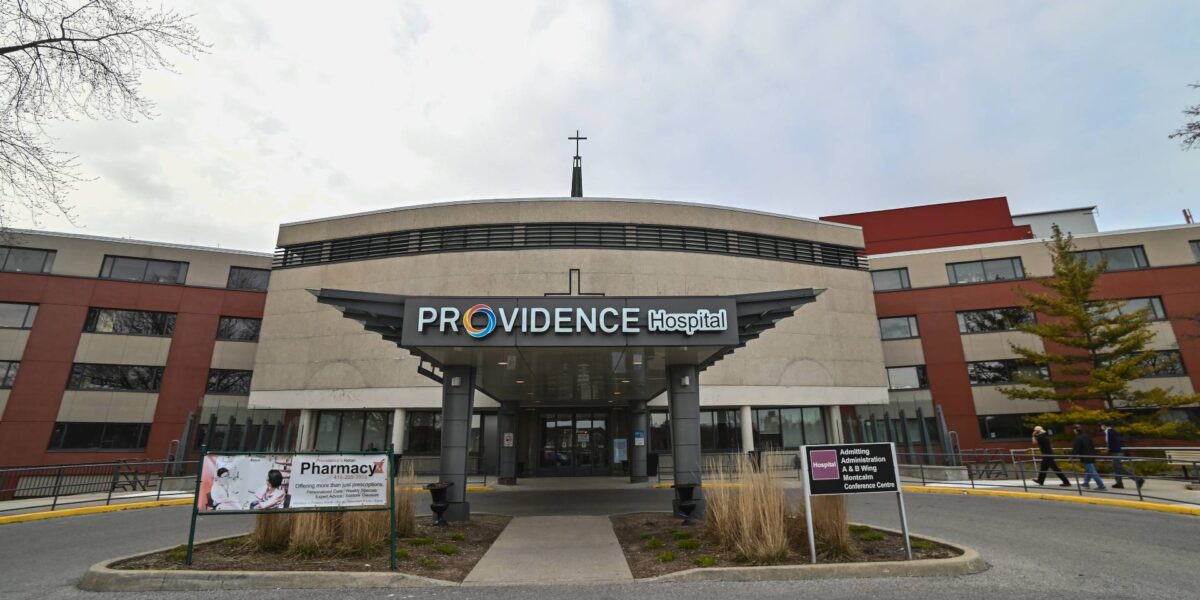A Toronto-based Unity Health Rehabilitation Program for those with long-COVID will be shutting down on August 31. The shuttering of the program takes one more virtual option away from those in Ontario with the condition.
When reached for comment, a Unity Health Toronto spokesperson directed rabble to the statement on their website. It states they are working to accommodate as many patients on the waiting list as they are able, “and providing family doctors with a list of alternate resources for their patients.”
It adds that the institution is “looking to provide the programming in different formats.” Though which format is not stated.
This takes away another option for patients dealing with long-COVID. Previously, another long COVID clinic, the Post-COVID-19 Outpatient Clinic at St. Joseph’s Care Group in Thunder Bay, announced it was no longer accepting referrals for its program.
Long COVID patients are being failed
Suzie Goulding began the COVID Long Haulers Support Group Canada, a network of Facebook groups that share resources and support for those with the condition. Goulding developed long-COVID after an infection in March 2020 and still has symptoms three years later. The group she manages is continuing to see people join to look for answers about their condition.
“People still need help,” Goulding said. “There’s still a huge void in accessing care and now the funding is drying up.”
A study by the Centre for Addiction and Mental Health found those who had long-COVID also had elevated levels of brain inflammation, which has also been linked to the brains of those with depression.
Despite Ontario’s Ministry of Health awareness of the gaps in long-COVID care, the province has no funding in place for healthcare support in 2022-2023. In June, the Financial Accountability Office, an independent watchdog, found the Ontario government is sitting on $22 billion in “excess funding.” This includes $4.4 billion in healthcare funding, with no plans on how it will be spent.
The Hotel Dieu Grace clinic in Windsor said they had talks with the Ministry about funding in December 2022, but hasn’t heard anything since then. A spokesperson told the CBC it only requires $200,000, adding it would “not be a huge amount of money to do this.”
Hotel Dieu Grace was reached for comment, but did not respond in time for publication.
Goulding said that when clinics initially began taking patients, they were overwhelmed and began turning people away, or putting them on long wait lists. Once new patients were admitted, initial applicants were unaware they could reapply. This led to lower numbers, which justified closures.
“So things just aren’t connecting,” she said. “Ontario has been really slow in reacting to long COVID as far as it being on the radar and getting funding.”
Mixed messaging
The Canadian federal government officially recognizes long-COVID as a “Post COVID-19 condition.” Their website states that symptoms of long-COVID can arise without a test or diagnosis of COVID, even if there were only “mild to moderate” symptoms during a COVID infection. Symptoms listed range from cognitive problems like memory loss or difficulty thinking, to general pain, discomfort, and fatigue.
The government also acknowledges 15 per cent of adults who were infected with COVID have experienced or still experience long-COVID symptoms three months past their initial infection. Forty-Seven per cent of these cases reported symptoms that lasted one year or longer.
A report released by Canada’s chief science adviser in December 2022 noted that more than 1.4 million people in Canada experience long-COVID symptoms. It also found that global data consistently estimates 10-20 per cent of individuals infected with COVID experience long-COVID in some capacity. The report’s recommendations include establishing a country-wide “research and clinical care network” for the condition and providing a “timely and equitable access,” to care for those living with long-COVID.
Despite the federal government’s acknowledgement that long-COVID can occur in people regardless of a COVID test or diagnosis, Unity Health’s long-COVID rehabilitation program restricts admittance to the program on these grounds. Their referral form only accepts individuals who are referred by a physician or nurse practitioner and are “confirmed to have been COVID-19 positive… or individuals who were symptomatic between January-May 2020 but did not have access to a COVID-19 test.”
Unity Health is not alone. Multiple long-COVID rehabilitation programs require a diagnosis or positive tests for referrals. This is a required field in forms from Scarborough Health Network and the Toronto Grace Health Network. The webpage for the Post COVID-19 Syndrome Clinic at Oakville Trafalgar Memorial lists “a COVID-19 diagnosis within the past year” as a specific criteria for referral. The Toronto Rehabilitation Institute’s referral form does not require a COVID diagnosis.
An uncertain future
Goulding pointed to promising research on the condition, but stressed the need for supports to be in place in the present moment.
“People just want to forget the pandemic is happening and are happy to move on with their lives,” she said. “Until they get long COVID and then they think ‘Oh my god, had I known, I wish I could have protected myself better’ because it happens a lot.”
Goulding also said while the situation was concerning, especially with the lack of a systemic framework to deliver information to healthcare practitioners, this was not the case with every healthcare professional.
“There’s a lot more knowledge and there are many doctors who are trying to be supportive and want to learn more about long covid and recognize it,” she said. “There are wonderful practitioners who are trying their best to go along with the information as it comes out and trying to help their patients.”
Goulding said that Canadian politicians are unequipped to confront the reality of the pandemic and long COVID.
“Until there’s some politicians who actually have long COVID are they going to realize how debilitating it actually is and how we should have done more for people,” she said. “The government told everyone to stay home, we did our part and then we weren’t offered any help.”



